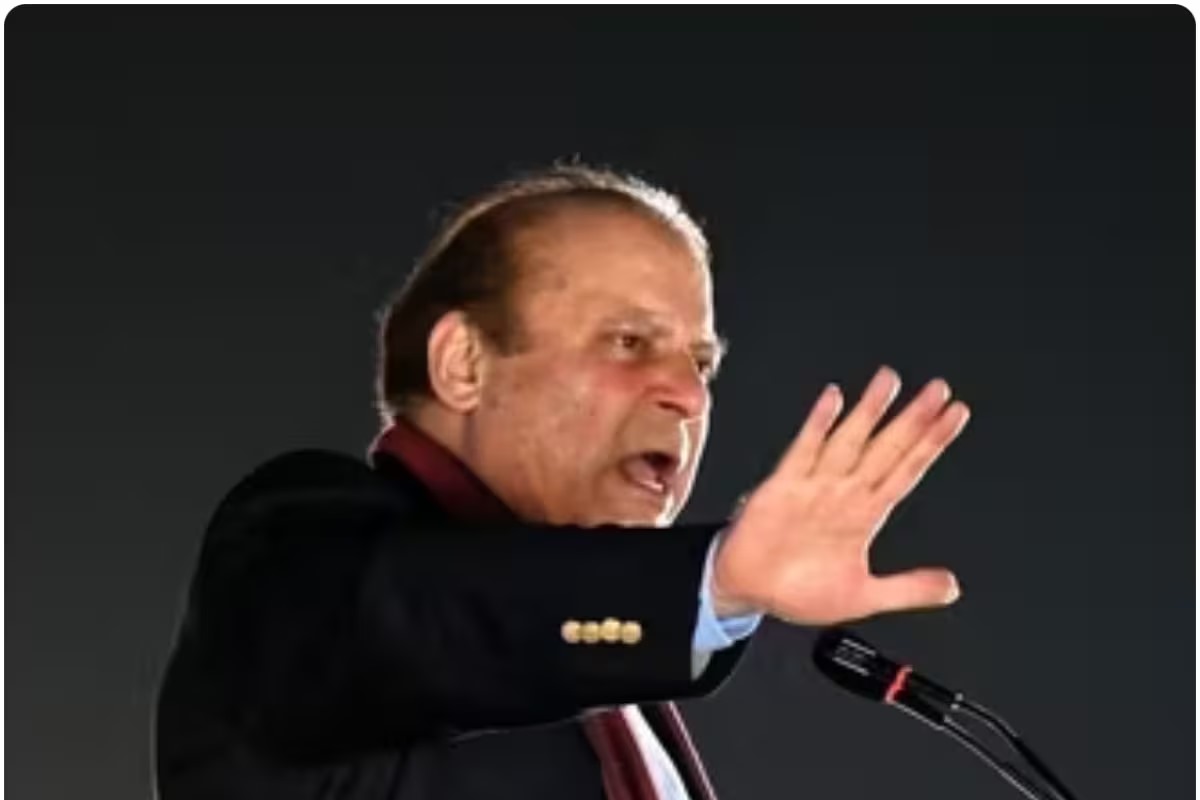Former Pakistan prime minister, Nawaz Sharif, made a significant return to his home country with a grand rally at Lahore’s iconic Minar-e-Pakistan. The 73-year-old leader, heading the Pakistan Muslim League (Nawaz), chose this moment to emphasize the Kashmir issue while addressing his party’s enthusiastic supporters.
Nawaz Sharif’s homecoming marked the end of his self-imposed exile in London, and it was an occasion where he laid out his vision for Pakistan’s foreign policy. He highlighted the importance of nurturing “good relations” with neighboring countries, albeit without explicitly mentioning India.
Advertisement
It’s important to recall that during his tenure as Pakistan’s prime minister, Nawaz Sharif made earnest efforts to establish cordial relations with India on two notable occasions. The first was in 1999 when he extended a hand of friendship during then-Prime Minister Atal Bihari Vajpayee’s historic Lahore bus trip. The second significant attempt came in December 2015 when Prime Minister Narendra Modi made a surprise visit to Pakistan. However, on both occasions, the Pakistan army derailed these initiatives.
In 1999, the Lahore bus initiative was met with the unfortunate eruption of the Kargil war, which escalated tensions between the two nations. The second instance in 2015 faced a setback when a terrorist attack targeted the Pathankot airbase on January 2, 2016.
What does this statement imply?
Nawaz Sharif’s statement about the necessity of reaching out to India, although a positive sentiment, is also a reminder of the intricate dynamics within Pakistan’s political landscape. In Pakistan, making overtures towards India requires the approval and cooperation of the influential Pakistan Army, which wields substantial influence over foreign policy and strategic decisions.
Despite his genuine intentions, Nawaz Sharif, like many leaders before him, faces the practical challenge of navigating the complex relationship between the civilian government and the military establishment in Pakistan. The military traditionally exerts a strong influence on matters related to national security and foreign policy, and its consent is often a prerequisite for any meaningful engagement with India.
While Nawaz Sharif’s rally and aspirations for better relations with neighboring countries reflect his vision for Pakistan’s future, experts believe that the ground reality is that the path to meaningful dialogue with India involves more than just political will. It necessitates a delicate balance of interests and power dynamics within Pakistan’s domestic governance.











